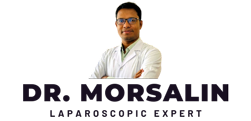The Role of Nutrition in Recovery
Integrating Nutrition into Your Surgical Recovery
When it comes to recovering from surgery, nutrition plays a vital role in the healing process. Providing your body with the right nutrients can help accelerate recovery, minimize complications, and improve overall well-being. In this article, we will explore the importance of nutrition in surgical recovery and provide you with a comprehensive guide to integrating it into your post-operative journey.
Nutrients Essential for Healing
During the recovery process, certain nutrients are particularly important for promoting healing and tissue repair. Protein, for example, is crucial for building and repairing tissues, while vitamin C supports collagen synthesis and boosts the immune system. Zinc and vitamin A are also essential for wound healing and reducing inflammation. Incorporating a variety of nutrient-rich foods into your diet can help ensure you’re getting an adequate supply of these vital nutrients.
Creating a Post-Surgery Meal Plan
To optimize your recovery, it’s essential to create a well-balanced meal plan that focuses on nutrient-dense foods. Start by incorporating lean proteins such as fish, poultry, tofu, and legumes into your meals. These provide the necessary amino acids for tissue repair. Additionally, include a variety of fruits and vegetables rich in antioxidants and fiber to support the healing process.
Easy-to-Digest Foods
After surgery, your digestive system may be sensitive, and certain foods can be harder to digest. It’s important to choose easy-to-digest options that won’t put too much strain on your body. Soft cooked vegetables, blended soups, and cooked grains like rice or quinoa are gentle on the stomach and provide essential nutrients without causing discomfort.
Gentle Options for Post-Surgery Nutrition
During the initial stages of recovery, it’s crucial to prioritize hydration and consume easily digestible foods. Incorporate broths and clear liquids such as herbal teas and diluted fruit juices to stay hydrated. Additionally, pureed fruits like bananas or applesauce, and smoothies made with protein powder and soft fruits can provide essential nutrients in an easily digestible form.
Hydration Tips
Staying hydrated is vital for optimal recovery. Drinking enough fluids helps maintain proper blood circulation, aids digestion, and supports overall healing. Aim to drink at least 8-10 glasses of water per day, and consider incorporating hydrating foods such as cucumbers, watermelon, and coconut water into your diet. Remember to consult your healthcare provider regarding any fluid restrictions that may be specific to your recovery process.
Supplements for Recovery
In addition to a well-balanced diet, certain supplements can aid in the recovery process. Vitamin and mineral supplements can help fill any nutritional gaps and support healing. Consult with your healthcare provider or a registered dietitian to determine which supplements are appropriate for your specific needs. Additionally, some herbal remedies such as turmeric and ginger can help reduce inflammation and promote overall well-being.
Avoiding Common Dietary Pitfalls
During the recovery period, it’s important to be mindful of certain foods that can hinder the healing process. Processed foods, sugary snacks, and trans fats can increase inflammation and delay the healing process. It’s also essential to manage any dietary restrictions or allergies you may have to avoid potential complications. Consult with your healthcare provider or a registered dietitian to ensure you’re making the best dietary choices for your recovery.
Managing Dietary Restrictions
If you have specific dietary restrictions or allergies, it’s crucial to find suitable alternatives that still provide the necessary nutrients for recovery. For example, if you’re lactose intolerant, opt for plant-based milk alternatives fortified with calcium and vitamin D. Working with a registered dietitian can be immensely helpful in tailoring your nutrition plan to accommodate any restrictions without compromising your recovery.
Consulting a Nutrition Professional
Navigating the world of nutrition during surgical recovery can be overwhelming, especially with individual needs and dietary considerations. Consulting with a registered dietitian can provide invaluable guidance and support. They can help you create a personalized nutrition plan, address any specific concerns or restrictions, and ensure you’re on the right track towards a successful recovery.
Benefits of Working with a Registered Dietitian
A registered dietitian is a qualified professional who specializes in nutrition and can provide evidence-based recommendations tailored to your specific needs. They can assess your current diet, identify areas for improvement, and guide you towards making informed nutrition choices that promote optimal healing.
Tailoring Nutrition to Your Unique Needs
Every individual’s recovery journey is unique, and so are their nutritional needs. A registered dietitian can take into account factors such as your medical history, surgical procedure, current health status, and personal preferences to develop a nutrition plan specifically designed for you. This personalized approach ensures that you receive the right nutrients in the right quantities to support your recovery effectively.
In conclusion, integrating proper nutrition into your surgical recovery is essential for optimizing healing and overall well-being. By focusing on nutrient-dense foods, easy-to-digest options, and appropriate supplements, you can support your body’s healing process and achieve a successful recovery. Remember to consult with a registered dietitian to tailor your nutrition plan to your unique needs and make the most of your post-operative journey.
